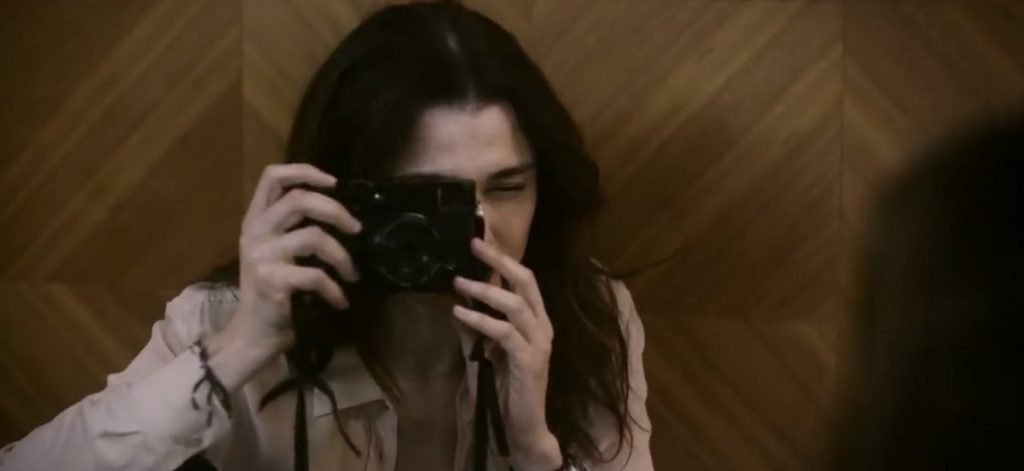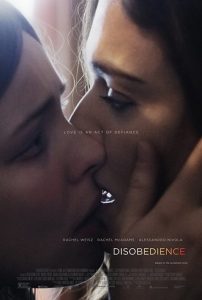Directed by Sebastian Lelio | Written by Lelio and Rebecca Lenkiewicz, based on the novel by Naomi Alderman | 114 min | Hoopla, On Demand
Smoking in movies has changed so much. Where once it was sexy and dangerous, now it signifies something else. Still danger, but also anxiety. Weakness. An addictive personality. Unhealth.
Ronit (Rachel Weisz) smokes. Her father, a rabbi beloved in his orthodox community, dies, and she returns from her home and photography work in New York to wintry London. There she reconnects with old friends Dovid (Alessandro Nivola) and Esti (Rachel McAdams), who’ve been married in Ronit’s absence.
Why Ronit left her people in London is a bedrock mystery here, but on the surface she refused to be hemmed in by their rules for women. It’s clearly more than that, deeper than that, and as we go along we understand. We understand about Ronit’s sensuality. It’s in the way she eats, the way she touches the world. It’s in her connection with Esti, about what they shared when they were younger. And then, in the second act, the story subtly shifts to being about Esti, and her decision-making, her life. It’s a delicate, startling feat, to move the focus of the film from one character to another.
Chilean director Lelio made a big splash internationally with his fifth feature, the astonishing A Fantastic Woman, which won the Academy Award for Best Foreign Language film. This picture further cements his reputation as a director to be reckoned with. Out of his leads he coaxes powerful work—this may be the best I’ve ever seen McAdams, who hasn’t had the breadth of dramatic parts Weisz has, but matches her here beat for beat. Nivola is an actor whose work I’ve admired going back to Junebug, and like that film he brings a quiet solemnity to his character.
It’s also a film that channels that undercurrent of sensuality into a startling, sybaritic sex scene. In this age of unsexy film, it’s bracing to see it done so well.
As a story about choice, about being true to oneself despite the circumstances of birth, of community, and of religion, this is unparalleled stuff. It reminds me a little of a rawer film exploring similar themes, the Israeli/French picture In Between that screened at Carbon Arc earlier this year, but this is elevated even further by the strength of these performances.
This is a strong draught. You feel it down to your toes.










